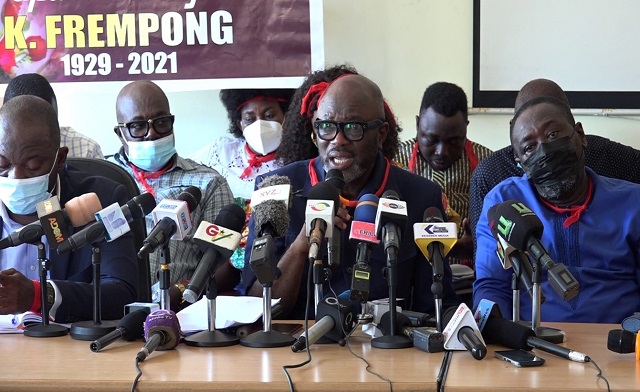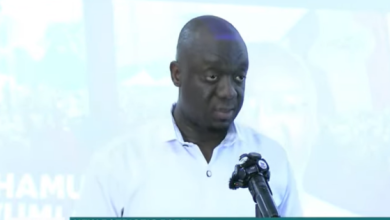
Business groups in the country have kicked against government’s decision to suspend the 50% benchmark values on selected goods and the 30% on vehicles.
It comes after a crunch meeting by the Ghana Union of Traders Association (GUTA) comprising 68 trader associations and other business groups.
Presenting the 2022 Budget Statement and Economic Policy in Parliament on Wednesday (17 November), Finance Minister Ken Ofori-Atta said the suspension of the benchmark value was consistent with the government’s policy to promote local industry and improve foreign exchange earnings.
However, a statement issued by GUTA on behalf of the business groups on Wednesday (24 November ) said the conditions that necessitated the introduction of the policy has been worsened following the outbreak of the COVID-19 pandemic.
GUTA said, “The policy of reducing the benchmark values did not come out of the blue. It was introduced in 2019 to save businesses in the country from total collapse, as a result of the very high import duties, other numerous taxes, high fees and charges on imports ranging between 55% to 65%, draining our capital.”
“This unbearable situation led to outcry and serious agitation by members of the business community, especially importers and call for a drastic reduction of cost of doing business in the country.”
“In view of the aforesaid, we are stating without any equivocation that we shall not accept the reversal of the benchmark value reduction policy, which we hope the government will, with all due respect, listen to our voice and avert any rift and unrest in the country, ” the GUTA statement said.
Suspension
The government suspended the 50% benchmark values on selected general goods and the 30% on vehicles to make the measure more efficient and targeted.
Presenting the 2022 Budget Statement and Economic Policy in Parliament on Wednesday (17 November), Ofori-Atta said the move was consistent with the government’s policy to promote local industry and improve foreign exchange earnings.
He said the government has restored “the benchmark values of imports by suspending the 50% discount on selected general goods and the 30% discount on vehicles.”
He said the government was committed to a programme of turning enterprising traders into manufacturers of widgets, tools and other machinery necessary as inputs for industrial growth.
The government has also reviewed the Value Added Tax (VAT) Flat Rate of 3% of the sale price of goods was introduced on the supply of goods by wholesalers and retailers.
The review will limit the Flat Rate to only retailers and provide a simplified system for small scale enterprises to make local goods with imported substitutes competitive.
To ensure the objective of the review is achieved, Ofori-Atta said the rate would be applied to retailers with annual turnover not exceeding GHC500,000.
All other retailers and wholesalers will be charged the standard rate, he said.
The minister said in 2019, VAT relief was provided on African prints for textile manufacturers to enable them to resuscitate their operations and provide affordable textiles to the market. That policy, he said, had succeeded in stabilising the industry and formed the basis for a modest increase in production.
He said the companies had also maintained their prices over the period, making the cost of local prints affordable.
Additionally, the companies had been able to keep their employees and made some investments in the industry as a result of the Policy.
The minister said to consolidate the gains and expand production in the industry, the government had decided to extend the Relief for a further two years.
Source: Asaase Radio




